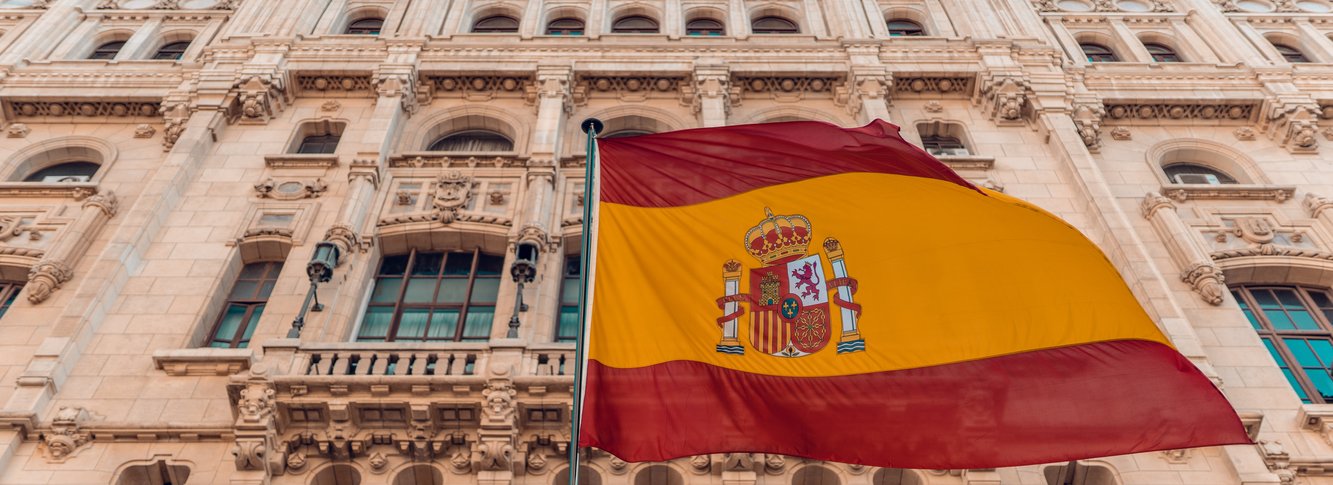| 6 mins read
There will be a general election in Spain on 26 June, after six months of political uncertainty. Mariano Rajoy and his right-of-centre Partido Popular/Popular Party (PP) received more votes than any other political party at the last election held on 20 December 2015, but were significantly short of an absolute majority. A coalition with Ciudadanos,the most market-driven of the recent political start-ups,would not have provided a majority, and none of the other major political parties were willing to play ball with a leader who has behaved in a self-interested, corrupt and authoritarian manner since his election in 2011.
The Partido Socialista Obrero Español/Spanish Socialist Workers'Party (PSOE),under the leadership of Pedro Sánchez had the opportunity to form their own coalition, but negotiations were far from straightforward. Significantly more voters opted for the PSOE than Podemos, the new party to translate most effectively into political currency the discontent and energy of the ‘15-M movement’, a shorthand for Spain's anti-austerity movement(s) that references the occupation of major squares throughout Spain by the so-called ‘indignants’ or ‘indignados’ in May 2011. Podemos probably had more to gain from seeking a new election than they did from forming a government with the PSOE, one of the two parties who have alternated in power since 1982.
The writings on and by the new political parties frequently speak of ‘a second Transition’, a challenge to the ‘regime of 1978’, in reference to the Constitution that consecrated the Transition from dictatorship to a liberal monarchical democracy following the death of General Francisco Franco in 1975, and the investiture of his chosen successor, King Juan Carlos, as head of state. Podemos has mobilised support through socio-cultural resources at a time when the PSOE no longer galvanises the electorate either emotionally or culturally. The popular perception of the PSOE in government is far from glowing: the presidency of José Luis Rodríguez Zapatero (2004–11)—nicknamed Bambi for his doe-eyed naivety—is frequently blamed for failing to provide sufficient buffering against the oncoming economic recession, while the legacy of Felipe González's tenure (1982–96) is increasingly tarnished by revisionist accounts of Spain's ostensibly model Transition. This is the context in which I travelled to Madrid to conduct an interview on 21 January 2016 with Alfonso Guerra,the longest-serving MP (1977–2015) of the post-Franco dictatorship, who was instrumental in the drafting of the Constitution, and has come to represent the radical cultural face of the PSOE.
He and Felipe González established a loyal power-base as young men in their native Seville, a city of great fortunes located in Andalusia, one of the poorest areas of Europe. The future President's sphere of influence was among the workers, while Guerra's demographic consisted primarily of students and intellectuals who gathered at the Antonio Machado bookshop. Following Franco's death, the PSOE were not major players: the principal opposition to the dictatorship had been provided by the Communist Party. This proved to be advantageous, for they did not instil the same fear of either a return to the Spanish Civil War (1936–9) or a radical redistribution of wealth, while the absence of a venerated old guard allowed Guerra and González to be fast-tracked through the party ranks.
Guerra subscribed to the widespread belief among progressive intellectuals and artists of the Transition that culture was a privileged tool for democratisation. Over the course of our conversation, he claimed to regret having not followed a cultural as opposed to a political career. Irrespective of whether we accept this claim as genuine, it is clear that neither he nor the modern-day PSOE would have been so successful politically if it were not for his engagement with culture in a myriad of guises. Guerra coordinated all of the PSOE's election campaigns from 1977 to 1993, which proved influential in a number of Latin American countries and pre-dated New Labour's cocktail of progressive change and pop-cultural cringe by over a decade.
When I mentioned the increasingly vocal opponents to conventional narratives surrounding Spain's Transition, Guerra simply dismissed them as ignorant, unaware of what the country was like in the late 1970s, failing to take into account the limited room for manoeuvre. Compromises, in his view, had to be made across the political spectrum in order to secure some semblance of consensus. To illustrate his general point, he spoke of Guernica: it was first displayed in the Prado in the late 1970s, at a time when the artistic director of Madrid's major museum was a priest, and members of the Guardia Civil were called upon to defend Picasso's masterpiece from vandalism.
Pablo Iglesias rejects this narrative, and is equally if not more adept at marshalling culture as a means for political advancement. Podemos self-consciously position themselves not only in opposition to specific individuals and political parties, but also question the very foundations by which the major players in Spanish politics secured and retained their parliamentary power. Among the many unknowns thrown up by last December's election results is whether posterity will remember figures such as Guerra and González as the architects or the saboteurs of a bona fide democracy, examples of what (not) to do as a troubled nation looks ahead to an uncertain future.
Need help using Wiley? Click here for help using Wiley


